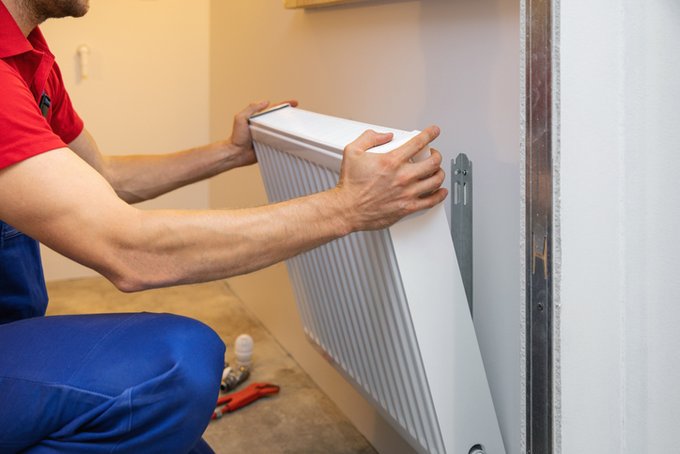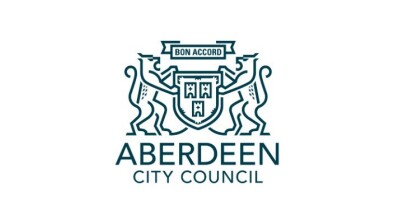Aberdeen’s green housing goals supported as council sets 2020/21 budget
Aberdeen City Council has unanimously approved its housing revenue account budget that it said will bring major investment in existing stock and a commitment to delivering Gold Standard new homes.

The approved spending plan, which comes as the local authority approved it 2020/21 budget, represents a capital investment of nearly £70 million for the upcoming year – providing nearly £250m over the next five years in the existing housing and new build programme.
The council committed to upgrading the housing estate – nearly 22,000 properties in all – and enhancing the community facilities that knit homes together.
Spending priorities include:
- £198,000 on cavity wall and loft insulation to help reduce heat loss and tackle fuel poverty;
- £7.7m on heating systems replacement, installing combined heat and power where feasible to provide more carbon friendly systems;
- £1.3m the creation of combined heat and power plants tackling both fuel poverty and ensuring a carbon footprint reduction;
- £420,000 on energy efficient measures in extra care housing;
- £1.2m on solid wall insulation to help reduce heat loss and improve energy efficiency within tenants’ homes;
- £500,000 on the refurbishment of properties and environmental improvements.
The housing revenue account budget is funded by the income from council house rents and associated fees and charges, and as part of the 2020/21 budget rents will rise by 4%.
Housing spokesperson Councillor Sandra Macdonald said: “The 4% rent increase ensures that today’s budget includes significant investment in our existing stock to improve healthy homes with £5m of investment. This is on top of the £22m of repairs and maintenance in our stock.”
Between sites at Manor Walk and Smithfield, the council has recently delivered nearly 200 new homes.
Work is under way on 369 homes at Summerhill and 283 at Wellheads in Dyce. We propose creating hundreds of new homes on sites at Craighill, Kincorth and Tillydrone, and progressing plans for two areas of land at Greenferns, with 350 homes earmarked for one of those sites.
Councillor Macdonald added: “These homes will support the physical and mental wellbeing of our tenants by satisfying their current and future needs, helping them become more self-sufficient and independent in the long term, benefiting everyone.
“Quality homes are essential if we are to help improve living standards and are central to our continuing economic success. In addition, our investment reaffirms our sound environmental stewardship.”
Elsewhere in the council budget, elected members agreed to invest £100m in measures to safeguard and enhance the environment, with commitments to improving air quality in the city and introducing more greenery.
The council also agreed to increase its investment in education and to provide extra support for some of the city’s most vulnerable residents as well as those caring for them.
The council will also continue to promote sustainable economic growth whilst locking in the benefits to ensure that Aberdeen – as guided by the Local Outcome Improvement Plan – remains a city where everyone can prosper.
The 2020/21 budget included:
- £5m for alternative fuel powered council fleet vehicles to help deliver an ambitious Low Emission Zone within the city centre;
- £15m for an environmentally-friendly heat network in Torry;
- £1m for cycling and walking infrastructure;
- £2.4m for the digital network to further improve services and reduce travel needs.
Council co-leader Douglas Lumsden said: “This council is overseeing the most significant period of transformation in the city’s history – socially, economically and environmentally – and today’s budget builds on that.
“It responds to the challenges around climate change in a direct way by investing in measures to reduce greenhouse gas emissions.
“We are committing £100m to continue moving us to a net zero carbon local authority. The council will, for example, look to begin a programme of providing Electric Vehicle charging points as we embark upon this ambitious programme for the energy capital of Europe.”
The council agreed a general revenue budget of £460m and a capital programme plan of £186m for 2020/21.
A report by officers had outlined options to bridge a funding gap of £37.9m in the general revenue budget used to cover running costs, a consequence of reduced grant funding coupled with increasing costs and rising demand.
To balance the books, Council Tax will rise by 4% – with £1.2m of the money marked for green initiatives.
Despite the financial pressures, the council agreed to commit an extra to £3.1m education and will exempt care experienced young people from paying council tax.
In a report, officers had presented £38.2m of options to close the funding gap but councillors rejected a number of proposals. These included closing libraries, community learning centres, and public toilets, increasing school meal charges, scrapping music tuition in schools, and reducing the number of school crossing patrollers and city wardens.





